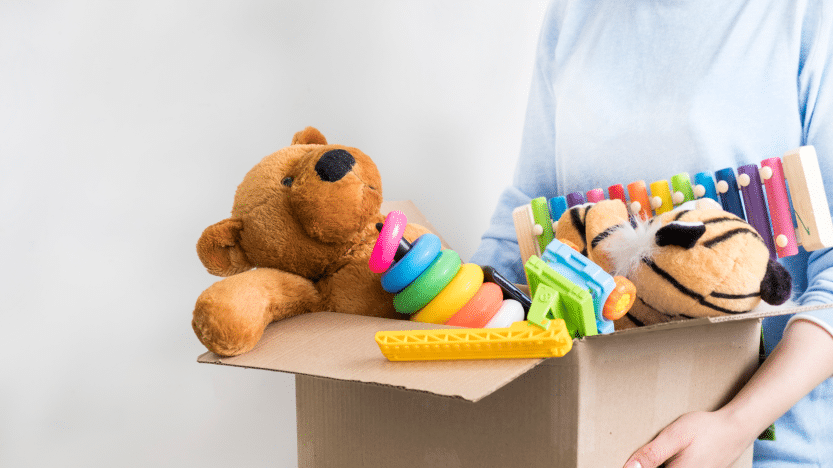Shipping children’s items and toys to Nigeria from the USA involves navigating various logistical, regulatory, and cultural considerations. Whether you are an individual sending gifts to family members, an e-commerce business expanding into the Nigerian market, or a charity organization providing aid, understanding the aspects of this process can help ensure a smooth and successful shipment. This comprehensive guide will walk you through the key steps and important factors to consider when shipping children’s items and toys to Nigeria.
Understanding the Nigerian Market for Children's Items and Toys
The market for children’s items and toys in Nigeria is growing rapidly, driven by a youthful population and an increasing middle class with disposable income. Nigerian parents and caregivers are increasingly looking for high-quality, educational, and safe toys for their children. There is a particular demand for toys that promote learning and development, as well as those that align with global trends and popular characters.
Key Considerations Before Shipping
Regulatory Requirements and Compliance
- Standards and Safety Regulations: Nigeria has strict regulations regarding the safety of children’s toys. Ensure that all items comply with international safety standards such as ASTM, CPSIA, and EN71. Documentation proving compliance may be required.
- Customs and Import Duties: Familiarize yourself with Nigerian customs regulations and duties on children’s items and toys. The Nigeria Customs Service (NCS) website provides detailed information on tariff classifications and rates.
- Prohibited Items: Verify that the items you intend to ship are not on Nigeria’s prohibited list. Some items, particularly those with specific chemicals or components, may be restricted.
Packaging and Labeling
Use sturdy, durable packaging to protect items during transit. Consider using bubble wrap, padding, and reinforced boxes to prevent damage.
Clearly label each package with detailed descriptions, including the contents, quantity, and value. Proper labeling can facilitate customs clearance and reduce the risk of delays.
Shipping Costs and Options
Choose between air freight and sea freight based on the urgency, volume, and weight of your shipment. Air freight is faster but more expensive, while sea freight is cost-effective for larger shipments but slower.
Research reputable shipping companies that have experience with shipments to Nigeria. Companies like DHL, FedEx, and UPS, offer upto 70% off via SFL Worldwide such as GIG Logistics can provide reliable shipping options.
Preparing Your Shipment
Selecting Items
Choose toys that are appropriate for the age group of the recipients. Ensure that they are safe, non-toxic, and free from small parts that could pose a choking hazard for young children.
Consider sending toys that encourage learning and development, such as puzzles, building blocks, educational games, and interactive learning devices.
Documentation
- Commercial Invoice: Prepare a detailed commercial invoice listing all items, their quantities, and their values. This document is essential for customs clearance.
- Packing List: Include a packing list that outlines the contents of each package. This helps customs officials verify the shipment and can expedite the clearance process.
- Certificate of Conformity: Some items may require a certificate of conformity to prove they meet safety standards. Check with Nigerian authorities if this is necessary for your shipment.
Packaging Tips
Use high-quality packing materials to secure items. Place heavier items at the bottom and lighter ones on top to prevent crushing. Use clear, legible labels with the recipient’s address, contact information, and a return address. Include “Children’s Items and Toys” on the label to make the contents easily identifiable.
Choosing the Right Shipping Service
Air Freight
Air freight is fast and reliable, making it ideal for urgent shipments or high-value items. Most major cities in Nigeria, including Lagos and Abuja, are well-serviced by international flights.
Air freight can be expensive, especially for large or heavy items. Weight and size restrictions may also apply.
Sea Freight
Sea freight is cost-effective for large and heavy shipments. It allows for the transport of bulk quantities, making it suitable for businesses or large donations.
Sea freight is slower, with transit times ranging from a few weeks to a couple of months. It may also require additional logistics for inland transportation within Nigeria.
Courier Services
Courier services like DHL, FedEx, and UPS offer door-to-door delivery, tracking, and insurance options. They handle all customs clearance procedures, simplifying the process for shippers.
Courier services can be more expensive than other shipping methods, especially for large or heavy packages.
Managing Customs Clearance
Customs Declaration
Provide accurate and detailed information on the customs declaration forms. Incomplete or inaccurate information can lead to delays, fines, or confiscation of goods. Use the correct Harmonized System (HS) codes for children’s items and toys. These codes help customs officials classify and assess duties on your shipment.
Import Duties and Taxes
Be aware of the duty rates for children’s items and toys. These rates can vary based on the type of item and its value. The Nigeria Customs Service website provides a tariff book with detailed information. Ensure that duties and taxes are paid promptly to avoid delays. Some shipping companies offer services to handle duty payments on your behalf.
Inspection and Clearance
Nigerian customs may conduct a physical inspection of your shipment. Ensure that your documentation is complete and that your items are easily accessible for inspection. Consider hiring a clearing agent to assist with the customs clearance process. Clearing agents are familiar with local procedures and can expedite the process.
Ensuring Safe and Timely Delivery
Use the tracking services provided by your shipping company to monitor the progress of your shipment. Most courier services offer real-time tracking updates. Keep in touch with your shipping company and the recipient to stay informed about any issues or delays.
Coordinate with local delivery services in Nigeria to ensure timely and secure delivery to the final destination. Companies like GIG Logistics and local courier services can assist with last-mile delivery. Inform the recipient about the expected delivery date and any required documentation or payments. This helps ensure a smooth handover of the shipment.
Handling Potential Issues
Delays can occur due to customs clearance issues, logistical challenges, or unforeseen circumstances such as strikes or natural disasters. Plan for potential delays by shipping items well in advance, especially for time-sensitive deliveries such as birthdays or holidays.
Consider purchasing insurance for your shipment to protect against damage or loss. Most shipping companies offer insurance options. In case of damage or loss, promptly file a claim with your shipping company. Provide all necessary documentation and evidence to support your claim.
Compliance Issues:
Regularly check for updates on import regulations and compliance requirements in Nigeria. This helps prevent compliance-related issues. Seek assistance from logistics professionals or customs brokers if you encounter complex compliance issues.
The Bottom Line
Shipping to Nigeria from the USA involves careful planning, adherence to regulations, and choosing the right shipping methods. By understanding the Nigerian market, preparing your shipment properly, and navigating customs clearance efficiently, you can ensure that your items arrive safely and on time. Whether you are sending gifts to loved ones, expanding your business, or supporting a charitable cause, this comprehensive guide provides the essential information you need to succeed in shipping to Nigeria.
FAQs: Shipping Children's Items and Toys to Nigeria from the USA
What are the best months to ship toys to Nigeria?
The best months to ship toys to Nigeria are during the dry season, from November to April, to avoid delays caused by the rainy season which can affect transportation and logistics.
Can I ship used children's items and toys to Nigeria?
Yes, you can ship used children’s items and toys to Nigeria, but ensure they are in good condition, clean, and properly labeled as used items to avoid any customs issues.
Do I need to pay customs duties and taxes on gifts?
Recipients may need to pay customs duties and taxes depending on the destination country’s regulations and gift value. Check the gift allowance and inform the recipient about potential fees.
How long does it take for air freight to reach Nigeria from the USA?
Air freight typically takes 5-10 business days to reach Nigeria from the USA, depending on the specific service and any potential customs delays.
Are there specific courier services that specialize in shipping to Nigeria?
Yes, companies like DHL, FedEx, and UPS have specialized services for shipping to Nigeria, offering door-to-door delivery, tracking, and customs clearance assistance. On booking with SFL Worldwide, you get uptp 70% off on such services.
What type of payment methods are accepted for customs duties in Nigeria?
Customs duties in Nigeria can be paid via bank transfer, online payment platforms, or through authorized agents. Check with your shipping company for specific payment options.
Is insurance necessary for shipping children's items to Nigeria?
While not mandatory, insurance is highly recommended to protect against potential loss, damage, or theft during transit, providing peace of mind and financial security.
Can I track my shipment once it arrives in Nigeria?
Yes, you can monitor your shipment’s progress even after it arrives in Nigeria until it reaches the final destination via SFL Worldwide.

I’m Tammy Waller, a supply chain and logistics specialist with over 10 years of expertise. I’ve been an author and SFL employee for over 10 years.
As an author, I’ve been able to teach others. I love guiding users through supply chain and logistics operations.
I have substantial experience managing logistics operations, supply chain management, transportation, inventory management, and warehousing in shipping-moving and logistic services. I’ve worked on many worldwide logistics and supply chain projects, honing my abilities in negotiating rates, scheduling shipments, and managing vendors.



